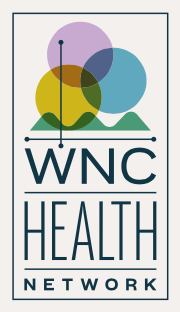Macon County Public Health’s Strategic Planning to Address Overweight & Obesity Involves Key Stakeholders
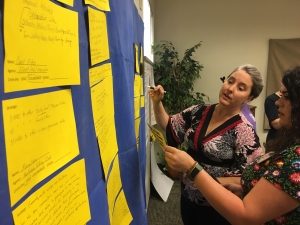
Erin Braasch and Lyndsey Henderson
In the current community health assessment (CHA) cycle, Macon County in western North Carolina identified “overweight and obesity” as one of its four health priority areas because it is a common risk factor for many chronic diseases and is one of the biggest determinants of overall health status. Local survey data from 2018 shows that 68.3% of people in Macon County are overweight and obese.
Lyndsey Henderson, health educator with Macon County Public Health, is leading the process locally to develop an action plan to achieve the result: “Eating smart and being active is part of everyday life in Macon County.” To this end, Lyndsey has formed a work group that includes representatives from the local library, Angel Medical Center, Macon Program for Progress, NC Cooperative Extension, and other community groups and businesses.
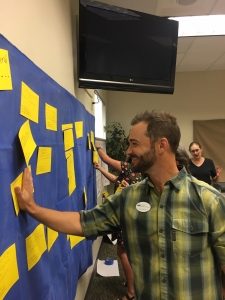
Matt Bateman
Matt Bateman works at Franklin Health & Fitness, a local fitness center in Macon County. “Even though we’re private and for-profit, we have a duty to the community,” says Matt. “We can uniquely offer services to the community, whether it’s free or through scholarships, to aid this goal of eating smart and being active as part of everyday life.”
Workgroup member Amanda Pack is Clinical Nurse Director, Cardiac and Pulmonary Rehab with Angel Medical Center. “We’re focused on obesity’s connection to chronic health management and disease management – doing what we can do to help reduce risk factors and help people make a turnaround to improve their long-term health,” says Amanda. “I really want to promote knowledge of the resources that we already have, the benefits or consequences of our health and our weight, and to promote access for our community.”
Macon County has contracted with Erin Braasch from WNC Health Network to help facilitate their action planning process. For the first workgroup meeting, Lyndsey and Erin worked together to develop an agenda that would use the Results-Based Accountability (RBA) framework to guide the group through a conversation around overweight and obesity in Macon County– including what’s helping/hurting and the partners involved.
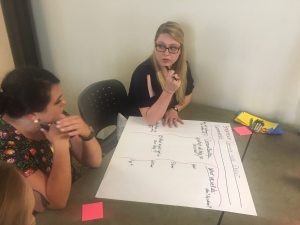
Amanda Pack and Lyndsey Henderson
Amanda Pack from Angel Medical Center says: “It’s wonderful in this workgroup to have collaborations from so many different aspects of the community with representatives from so many different places. This whole task force has been a good utilization of everyone’s time; we’re all professionals, we’re all busy. The structure is to the point, but it also allows for people to collaborate and share ideas.”
“Using RBA set me up for success,” says Lyndsey. “The thing that I liked most about how it was structured is that we specifically set aside time to talk about what’s helping and hurting. It can be difficult when groups want to go straight to what’s wrong and what’s not working. When you talk about what’s helping you uncover great things happening in the community – great resources and great people. It’s an eye opener – that even though there might be a gap here, there’s also an abundance here.” Lyndsey adds: “The way that we did it left people motivated and energized. We didn’t leave on a negative note – everyone seemed motivated and inspired.”
The workgroup spent their second meeting on community health strategic planning, including identifying indicators, performance measures, and prioritizing their first action together.
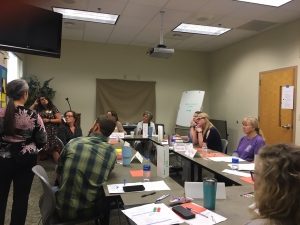 Carol Pitts with the Macon County Cooperative Extension Service runs the youth 4H and is a nutrition educator in the school systems and in job corps. Her hope for the workgroup is that they can break down siloes within their community and that, “we can help each other and grow and be healthier and make those changes in our lifestyle. It’s not a weight loss challenge, it’s a lifestyle change we all need to make.”
Carol Pitts with the Macon County Cooperative Extension Service runs the youth 4H and is a nutrition educator in the school systems and in job corps. Her hope for the workgroup is that they can break down siloes within their community and that, “we can help each other and grow and be healthier and make those changes in our lifestyle. It’s not a weight loss challenge, it’s a lifestyle change we all need to make.”
Lyndsey is excited about the progress of the task force, and the potential for change that she can see. “I really believe the community health assessment is by the community and for the community. Having this group feel like they own this process and that these priorities are important for them and others in the community – that was my biggest goal in planning and organizing and getting geared up for this.”


